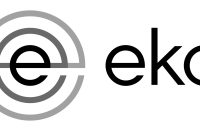PR News WireThis post was originally published on this site
Poster Presentation Details Visualization of Low-Voltage ECGs Hidden by Ablation Energy Artifact
COPENHAGEN, Denmark, April 8, 2024 /PRNewswire/ — CathVision today announced data from the PVISION trial demonstrating the ability of the ECGenius System’s predictive noise filter to increase the time window before noise saturates PV potentials during PVI procedures. The data will be presented in a poster presentation at EHRA 2024.1
A sub-analysis of the PVISION trial, led by Prof. Dr. Jan De Pooter at the University of Ghent, included 68 veins treated from 24 patients who underwent a PVI procedure providing sufficient information about the start and end of the energy delivery cycle. Key data points include:
- Of the 68 veins treated, 33 exhibited power line noise on one or more bipolar traces during the freeze cycle (49%).
- The mean amplitude of PV potentials before application of energy was 0.49 mV (SD 0.79 mV) and the mean time to artifact exceeding this level was 69+/-50 seconds, across all bipolar traces with ablation noise present.
- After applying the intelligent zero-delay predictive filter, the mean time to artifact exceeding the baseline PV amplitude increased to 82 seconds (SD 57 seconds; P < 0.001) across all bipolar traces with ablation noise present.
- In 44 veins, the noise amplitude never exceeded the PV potential amplitude on any of the bipolar traces during the freeze after applying the intelligent filter.
- Paired analysis of the average time of noise exceeding the PV potential amplitude was 116 seconds before application of the predictive filter and 26 seconds with the filter applied.
“Viewing pulmonary vein potentials in real-time throughout an ablation procedure and assessing the time to isolation is critical to achieving acute success that is linked to long-term freedom from AF for patients,” said Prof. Dr. Jan de Pooter, Ghent University (Belgium). “When we employed the predictive filter using the ECGenius System, the noise was eliminated from the electrogram data during the PVI procedure. The clarity this provides is outstanding and unprecedented.”
Poster Details
EHRA 2024
April 7-9
“Intelligent Filter To Remove Artifact During Cryo Freezing For Pulmonary Vein Isolation Increases The Time Window For Observation Of Time Of Isolation”
Authors: Prof. Dr. Jan De Pooter, Karl Firth, Rune Paamand, Dr. Martin Valvik
“This study is the latest demonstration of CathVision’s proven ability to develop differentiated technology that advances the data from EP recording systems to help EPs make accurate treatment decisions,” said Mads Matthiesen, CEO of CathVision. “We know signal noise and artifacts can create a false reality. ECGenius System’s innovative, predictive filter is designed to intelligently remove artifacts, exposing small signals hidden by significant energy delivery, creating a more accurate depiction of pulmonary vein isolation. This is another example of why the accepted standard for EP recording systems must change. Improving cardiac signal data is the foundation for improving procedural outcomes.”
For more information about ECGenius System and CARDIALYTICS, or to meet with CathVision at EHRA 2024, please contact us and connect on LinkedIn.
About CathVision
CathVision is a medical technology company that develops electrophysiology solutions centered around an innovative EP recording system and AI algorithm platform – the ECGenius System with CARDIALYTICS. Committed to empowering physicians to make more informed clinical decisions in the EP lab, CathVision is redefining the necessity of exceptional cardiac electrical signals to diagnose, characterize, and treat the most common heart rhythm disorders. CathVision was founded in 2013 and is headquartered in Denmark with a U.S. office in Minnesota.
Follow CathVision: Twitter/X and LinkedIn
1 ECGenius System is cleared for sale in the US. Not approved for sale in the rest of the world.
SOURCE CathVision







